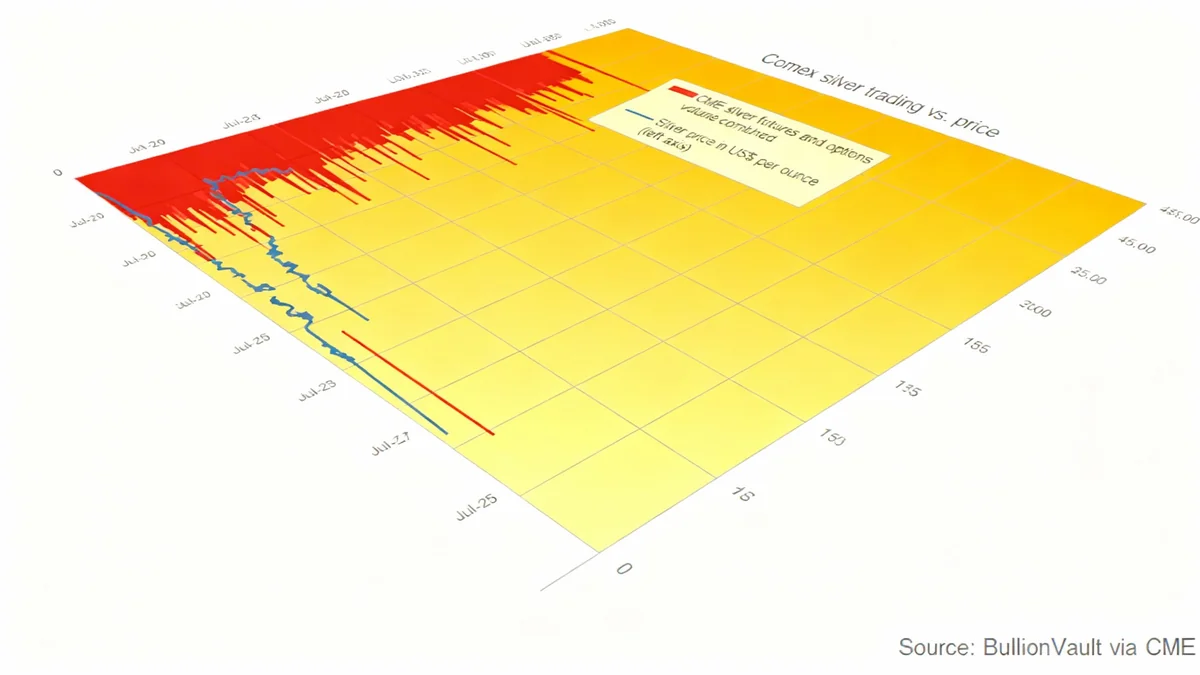Corporate earnings season has started on a positive note, with all four S&P 500 companies that reported this week surpassing both profit and revenue estimates. However, this strong performance from the corporate sector is being overshadowed by broader economic concerns, as a U.S. government shutdown weighs on market sentiment and delays the release of critical economic data.
The market rally seen in previous weeks has stalled, with major indices closing lower on Thursday. Investors are now closely watching the political situation in Washington and the upcoming wave of earnings reports, particularly from the financial sector, to gauge the health of the economy.
Key Takeaways
- All four S&P 500 companies reporting this week exceeded analyst expectations for both earnings per share (EPS) and revenue.
- Wall Street's recent rally has paused due to investor concerns over the ongoing U.S. government shutdown.
- The shutdown has delayed the release of important economic indicators, including the Consumer Price Index (CPI) and payroll reports, creating uncertainty.
- A significant number of major banks and financial institutions are set to report their quarterly results next week, offering a crucial look into the economy.
Market Momentum Halts on Shutdown Concerns
Stock index futures showed modest gains on Friday, but the broader market momentum has clearly faded. The positive trend on Wall Street came to a halt this week after the U.S. Senate was unsuccessful in passing two separate bills aimed at ending the government shutdown.
This political gridlock has introduced a significant level of uncertainty for investors. According to Henry Allen of Deutsche Bank, markets have struggled to find direction. "Investors question how long this rally can persist, while concern grew about an extended government shutdown in the U.S.," he noted.
The lack of a clear path forward in Washington has led to a cautious approach, resulting in a "modest pullback" for equities as traders assess the potential economic impact of a prolonged shutdown.
Economic Data Delays Create Blind Spots
Adding to the market's unease is the delay in the release of key economic reports. The shutdown prevents government agencies from publishing crucial data that investors and the Federal Reserve rely on to make informed decisions.
"If the shutdown does persist into next week, we won’t get the CPI release on Wednesday, which will leave us increasingly uncertain about the U.S. economy," explained Allen.
This situation leaves market participants in a difficult position. "For now at least, this lack of data means we’re flying blind to some extent on the U.S. economy, and we still don’t have the September payrolls report that was meant to come out a week ago,” Allen added. The absence of this data makes it harder to assess inflation trends and the state of the labor market.
The Role of the Federal Reserve
The uncertainty was further compounded when Federal Reserve Chair Jerome Powell did not provide any new guidance on monetary policy or the economic outlook during a recent public appearance. The Fed typically uses data like the CPI and payroll reports to guide its interest rate decisions, making the current data blackout a significant challenge for policymakers and analysts alike.
Early Earnings Reports Show Corporate Resilience
Despite the macroeconomic headwinds, the initial batch of corporate earnings reports has been positive. All four S&P 500 companies that released their results this week managed to beat analyst expectations, suggesting that some businesses are navigating the challenging environment effectively.
Constellation Brands Navigates Headwinds
Constellation Brands (STZ) delivered second-quarter results that were better than anticipated. The company posted an adjusted profit of $3.63 per share. While this was a 16% decrease from the same period last year, it was $0.22 higher than what analysts had predicted.
The beverage company faced challenges, including a 7% decline in beer sales and increased costs in its beer segment. These factors led the company to lower its profit outlook for the full year, yet its ability to exceed quarterly estimates provided some reassurance to investors.
PepsiCo Reports Revenue Growth
Global food and beverage giant PepsiCo (PEP) also reported strong results. The company's revenue increased by 2.7% year-over-year to $23.9 billion. Its non-GAAP earnings per share came in at $2.29, beating the consensus estimate by $0.03.
However, the report was not entirely positive. Organic sales growth of 1.3% missed the consensus expectation of 2.1%. Additionally, reported operating profit fell by 11%, with significant declines in its North American beverage and Latin American food divisions.
Other Notable Earnings This Week
- McCormick & Company (MKC): The spice and flavor company surpassed analyst forecasts for its third-quarter earnings. Sales in its consumer segment grew by 4% to $973 million. However, the company noted a contraction in its gross profit margin.
- Delta Air Lines (DAL): The airline reported strong third-quarter results and provided an optimistic forecast for the rest of the year. Delta now expects to earn between $1.60 and $1.90 per share in the fourth quarter on revenue growth of 2% to 4%, which is above market expectations.
Financial Sector in Focus Next Week
The earnings season will shift into high gear next week, with a heavy focus on the banking and financial services industry. These reports will be scrutinized for insights into consumer spending, loan demand, and the overall health of the U.S. economy.
The schedule is packed with industry leaders, providing a comprehensive overview of the financial landscape.
A Packed Schedule of Bank Earnings
Investors are anticipating results from some of the largest financial institutions in the country. The reporting schedule is as follows:
- Monday: Fastenal (FAST)
- Tuesday: JPMorgan (JPM), Johnson & Johnson (JNJ), Wells Fargo (WFC), Goldman Sachs (GS), BlackRock (BLK), and Citigroup (C)
- Wednesday: Bank of America (BAC), Morgan Stanley (MS), and Abbott Labs (ABT)
- Thursday: Charles Schwab (SCHW), Bank of NY Mellon (BK), and U.S. Bancorp (USB)
- Friday: American Express (AXP) and State Street (STT)
The performance of these banks will be a critical test for the market. Strong results could help restore investor confidence, while any signs of weakness could exacerbate the concerns currently driven by the political situation in Washington.





